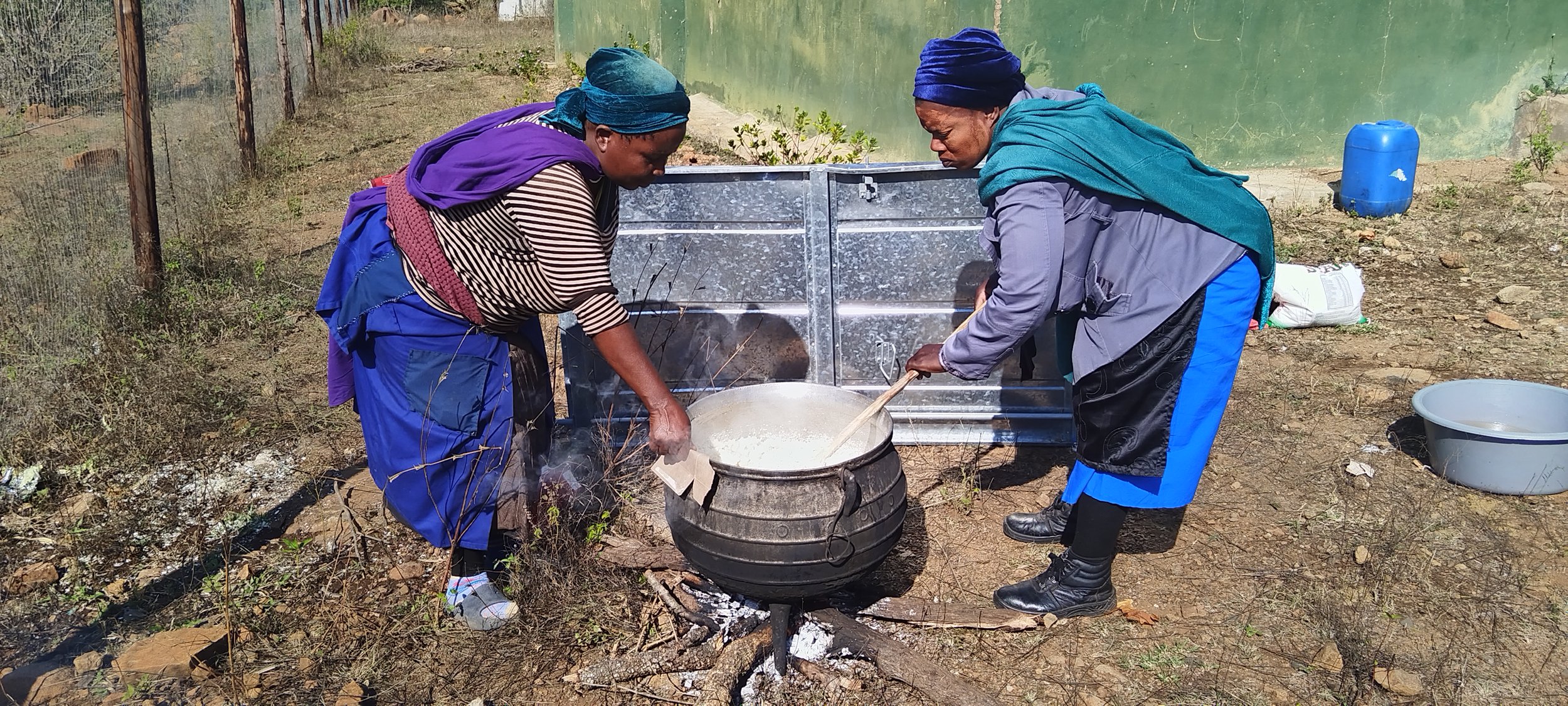
Creating a centre for orphaned and vulnerable children in Msinga, South Africa
Self-help Group members had a vision to construct a simple building to house a children’s centre, which will provide meals before and after school, help with homework and run a preschool, to help orphaned and vulnerable children to thrive in this rural community.
E3 partner, Zimele Wethu, helps families escape the cycle of poverty by working together socially and economically in self-help groups (SHGs) in South Africa. Group members meet weekly to connect and save small amounts of money together, which they access for loans to enable them to set up small businesses. The SHGs also set up social projects to improve life for those around them, like this centre.
Local children lack support for their emotional, material, mental health and social needs, which greatly hinders their personal and academic development. Children are vulnerable because of neglect and abandonment by their parents, the death of parents/guardians, lack of livelihoods for families and patriarchy and abuse, which drive children away from their homes.
“At the moment we lack a meeting place and a kitchen to prepare meals. We meet, prepare and serve meals outside once a week. When it rains, we are unable to operate, which leaves a big gap for the children who need our support daily. Having our own centre will be such a blessing to the whole community.” Madlala, Self-help Group member.
The difference the centre will make:
50 children will come for meals before and after school so their tummies are full, and they can concentrate properly on their lessons. Without this support, children are sleepy in class, go to bed hungry and this is a constant worry for their grandparents and guardians.
50 children will attend Life Skills lessons to develop skills to make good decisions in life and thrive.
50 children will also receive help with their homework from local school leavers who will volunteer.
20 children from 3 months to 5 years will attend the preschool, benefitting from a safe, nurturing and stimulating setting. They will have two nutritious meals a day. Priority will be given to children in most need.
The orphaned and vulnerable children benefitting from this programme:
15% live in child-headed households | 51% live with elderly grandparents | 34% have single parents with no income.
Ayabonga’s story: Ayabonga is 19 years old. Her mother abandoned her and when her father died, she stayed with her stepmother. Her oldest half-brother abused her physically and verbally and she ran away to her mother’s relatives, who were unable to provide for her needs.
Mkhize child-headed household: Nosipho and Luthando are 16 year-old twins, Ayanda is 17 and Spamandla is 21. They were abandoned by their father and left to live with their mother who was very unwell. Since she died, they have lived on their own without any income or child support grants.
Ndlovu family: Sifiso (4 years old and living with a disability) and Mnikeni (aged 13) are siblings living with their grandmother. Their mother died and their father’s whereabouts is unknown. The siblings rely on the grandmother’s old age social grant and support from this project to provide for their needs.








